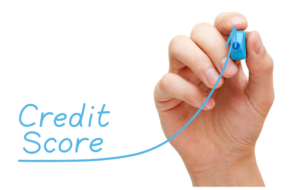
How to Increase Your Credit Rating in Canada
In Canada, having a good credit rating or credit score is vital. Among others, It can make you eligible for a better mortgage and other loans you might want to take in the future. Your credit score is the key to cheaper rates and easier credit card and loan approvals. Perhaps, your credit rating has suffered a setback, there are several basic steps you can do right now to boost it.
What is the time frame for improving your credit score? It varies and therefore is determined by how poor your credit score is, to begin with. Regardless of how low your credit rating is, the appropriate method can quickly raise it by several points, like a 350 to 390.
In this post, we will explain what a credit rating is, and offer helpful hints for building a strong credit history in Canada.
What does a credit score entail?
Certain information and data are given to the credit bureau when you take a loan from a bank (or lender). Extra data, such as whether you’ve paid your bills on time, missed payments, and the amount of debt you owe, will be continually shared with the credit bureau.
This set of information goes into determining your credit score, which is a 3-digit number that tells lenders how likely you are to repay a loan, as recorded on your credit report.
What is a good and ideal credit score?
A credit score is a 3-digit number provided by credit bureaus (Equifax and TransUnion) to lenders and others evaluating your creditworthiness. Mortgage lenders, Insurance firms, Banks, Utility Companies, and in some situations, potential jobs are among them.
Credit scores range from –
300: The lowest possible score or the starting point;
720 – 780: The game-changer score, which will make you eligible for a standard loan;
781 – 900: The highest of them all, which is awarded for excellent credit history.
The bank or your lender will take a lower risk if your score is higher, and vice versa. If your credit score is below 720, it will be more difficult to obtain loans or credit cards; you may be given a reduced credit limit and pay higher interest rates.
5 Ways to Increase Your Credit Score

1. Make on-time payments and pay off the entire balance each month
When lenders look at your credit record and ask for your credit rating, they want to know how trustworthy you are when it comes to your repayment attitude, because past payment history is usually a solid indication of future performance.
To establish an excellent credit history, make all of your regular monthly payments on time. Although your credit card account will always show the minimum amount due, it’s ideal to pay off the debt in full every billing period if you’re just looking to start with increasing your credit rating. You can avoid credit card debt by paying off your entire bill each month.

2. Use credit responsibly
Always keep your credit limit in mind. If your credit card has a $3,000 limit, try not to exceed it. You should only spend what will not be difficult to repay as and when due. Spending more on a credit card than is permissible will affect your credit score.
As much as possible, don’t use above 35% of your overall credit for each billing period. This covers all of your credit products, such as a line of credit, a credit card issued by a bank or private lender, loans, etc. If you have a $2,000 credit card and a $5,000 line of credit, for example, you should keep your overall spending to around $2,450 (35 percent of $7,000) or less, while also sticking to the 35 percent guideline (in this case, $700) for your credit card.
Lenders view you as a higher risk if you regularly exceed your credit limit. Even though you may pay your full balance before the due date, this is still true.
3. Your credit application should be kept limited
A lender may ask to check your credit report. They are requesting access to your credit record with the credit bureau when they do so. An inquiry is made on your credit report as a result of this.
Credit checks are divided into two categories: soft hits and hard hits:
Soft hits: Credit checks that reflect on your credit record but are only visible to you. These checks have no bearing on your credit score. Requesting your personal credit history or businesses requesting your credit score to get your records up-to-date concerning the account(s) you have with them can be the reason for such a check.
Hard hits: These credit checks reflect on your credit file and have the potential to lower your credit score. These results will be visible to anybody who looks at your credit report. Instances that can warrant these checks include, but are not limited to mortgage or credit card issuing, as well as various rental and employment applications. Lenders may believe you’re trying desperately to find credit and trying to live above your means if your credit report contains so many (hard) credit checks.
4. Check your credit report for any errors.
When you receive your report, look for the following things:
- Loan account and credit card errors, which includes a payment you completed on time that is listed as late, this might affect your credit score;
- Inaccuracies in your personal details, such as an inaccurate mailing address or birth date;
- Accounts that you never registered are listed, which could indicate identity theft;
- Any suspicious activities or instances of fraud must not be left unreported if you don’t want them to affect your score.
Target all reports immediately to the appropriate credit bureaus.
5. Utilize different forms of credit: credit cards, loans, and lines of credit
Your credit score is affected by the number of credit products you have (examples are credit cards, loans, mortgages and so on). It is recommended that possessing a variety of credit products could help you enhance your credit score. Nevertheless, make sure you can repay any money you borrow; otherwise, taking on more debt could ruin your credit score for good.
Final thoughts
There is still hope if your credit rating isn’t perfect. With the strategies outlined above, you can quickly make a great change and boost your score in no time. The first step is to obtain your credit report, review it carefully for mistakes. If there are any, file a complaint and have them corrected.
After that, you should constantly remember to pay your payments on time, as this is the single most important factor that influences your credit score. Contact Us today and get help you need.





